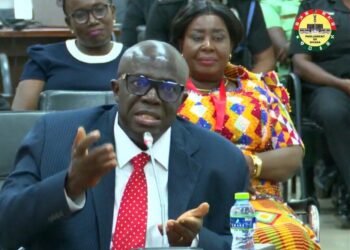Prime Minister of Japan, Shigeru Ishiba is set to meet with Donald Trump at the White House.
This comes as the Japanese leader hopes to cement ties with the country’s primary foreign partner.
US and Japanese officials said that economic and security concerns – particularly North Korea – will be high on the agenda, along with advanced technologies such as artificial intelligence.
Ishiba and Japanese officials said that the main purpose of the visit, however, is to forge personal ties with Trump – who had a warm relationship with former Prime Minister Shinzo Abe during his first term.
The visit marks the first by an Asian leader to the White House since Trump’s second administration began in January.
Nonetheless, it is the second by a foreign leader during the new administration, following Israeli Prime Minister Benjamin Netanyahu’s whirlwind trip earlier this week.
Ishiba told reporters before leaving for Washington, “It will be our first face-to-face talks.” He added, “I would like to focus on building a personal relationship of trust between the two of us.”
During Trump’s first term from 2017 to 2021, he grew close to then-Japanese Prime Minister Shinzo Abe, bonding over golf. Abe resigned in 2020 and was assassinated two years later.
Japanese officials said that Ishiba made “every possible preparation” for his meeting with Trump, including seeking advice from Abe’s widow – who attended the inauguration as a guest of Melania Trump – and from his predecessor, Fumio Kishida.
Senior Trump administration officials described the visit as primarily focused on “peace and prosperity” in the Pacific. Trump is likely to bring up realistic training exercises between the US military and Japan’s Self-Defence Forces, as well as cooperation on defence investment.
The White House said that semiconductors and artificial intelligence also would be on the agenda.
From the Japanese perspective, Ishiba is also expected to underscore Japan’s role as a major economic partner for the US, and highlight that Japan has been the top foreign investor in the US for five consecutive years.
Among multinational firms, Japanese companies are the largest job creators in 10 states and the second largest in another six.
In Kentucky alone, Japanese companies employ more than 45,000 people, primarily in auto equipment manufacturing.
Defence And Security Likely To Be Discussed
Defence and security discussions are likely, including Japan’s recent commitment to raise defence spending to 2% – far below the 5% that Trump has called for among NATO allies – as well as the US commitment to Taiwan’s defence and mutual concerns about North Korea.
Japanese officials consider North Korea’s growing military ties with Russia worrisome, particularly the prospect of Russian missile technology being transferred to their ally.
Trump administration officials said it shares Japan’s “commitment” to a de-nuclearised North Korea.
Meanwhile, Brad Glosserman, Deputy Director of the Tama University Center for Rule Making Strategies in Tokyo, opined that Trump is likely to want more defence spending from Japan.
“My sense is that the United States is now going to be asking for 3% at a minimum and perhaps even more.
“That’s going to be extremely difficult for the Japanese to do, given the difficulties that they have at this moment. Again, because of a weak Prime Minister with competing national policy priorities.”
Brad Glosserman
Glosserman noted that Ishiba’s party is in the minority in Japan’s parliament, and defense hawks in his own party find him too moderate, and too conciliatory towards China.
READ ALSO: J.J. Rawlings Foundation Demands Probe Into Attack On Rawlings’ Legacy



















